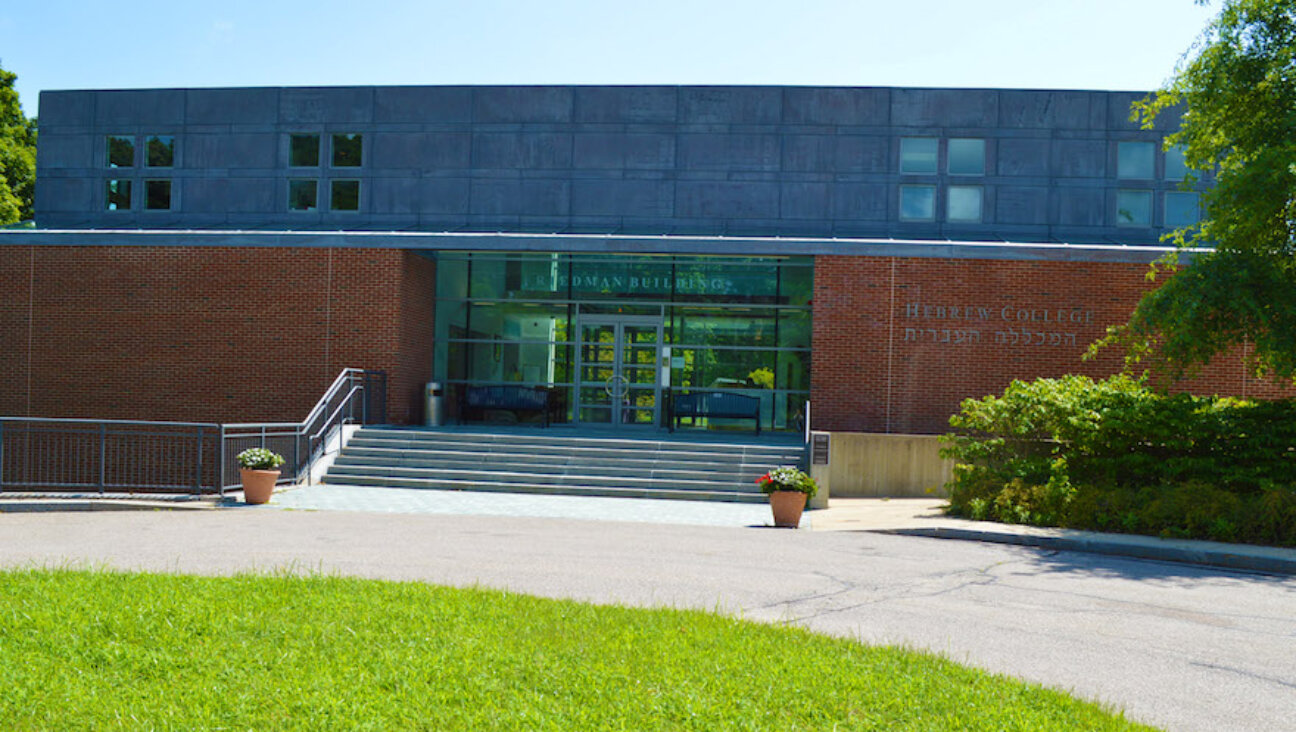June 26, 2009
‘Triumphalists’ Don’t Have ‘Heavy Hearts’
Predicting the future of the Jewish community can be a dangerous exercise, as historian Jonathan Sarna correctly points out (“Saying Kaddish Too Soon,” June 5).
However, when you look at the intermarriage statistics and the resulting loss of Jews, and then apply these numbers to future generations, it’s hard to argue with Rabbi Norman Lamm’s suggestion that “we will soon say Kaddish on the Reform and Conservative movements.” Time will tell whether or not he is right.
In addition, I take exception to Sarna characterization of Rabbi Lamm’s statement as “triumphalism.” Those who engage in triumphalism do not do so “with a heavy heart,” which are the words that preceded Lamm’s prediction. Lamm also has a long history of cooperating with the leaders of other denominations, which does not reflect a triumphalist approach at all.
While Rabbi Lamm’s statement may not have been politically correct — and others in the Orthodox community may have prematurely used it to boast about their own future — it certainly was not triumphalist in either tone or content.
Michael Feldstein
Stamford, Conn.
Among five major challenges Jonathan Sarna enumerates, he avers that “American Orthodoxy is experiencing a significant brain drain. It sends its best and its brightest to Israel for long periods of yeshiva study, and unsurprisingly, many of them never return.”
Let’s analyze that. It is true that a significant percentage of graduates from Orthodox high schools go to study in Israel for a year or two after graduation. It is also true that the year or two in Israel has an impact on aliyah. That, however, does not make for a “significant brain drain.”
According to Israel’s Central Bureau of Statistics, during the 21-year period of 1988 to 2008, the average annual number of olim from the United States was 1,762. If we estimate on the high side and suggest that as many as 90% of those olim were Orthodox, that means that 1,586 American Orthodox Jews — adults and children — per year made aliyah. Since there are about 700,000 Orthodox Jews in the United States, that means, on an annual basis, about two-tenths of 1% made aliyah.
Even if we were to assume that all of them would have otherwise ended up making significant contributions to the American Orthodox community — which is clearly not the case — the numbers hardly appear to be a “significant brain drain.” In addition, a conservative estimate would be that, for a variety of reasons, about 10% of the olim return to live in the United States, so the number of long-term American olim is actually even lower.
Moreover, many of those with leadership skills continue to have an impact on American Orthodoxy after their aliyah. The “best and brightest” continually travel back and forth between Israel and America, where they contribute to the Orthodox communities in both countries. And, in this era of global communications, they don’t even have to be in America physically to have impact.
American Orthodoxy does have serious problems, some of which are succinctly indicated by Sarna. Those problems, however, are not the result of a “significant brain drain” caused by aliyah. They are problems that are “made in the USA.”
Chaim I. Waxman
Jerusalem, IsraelThe writer is a professor emeritus of sociology and Jewish studies at Rutgers University.

I hope you appreciated this article. Before you go, I’d like to ask you to please support the Forward’s award-winning journalism this Passover.
In this age of misinformation, our work is needed like never before. We report on the news that matters most to American Jews, driven by truth, not ideology.
At a time when newsrooms are closing or cutting back, the Forward has removed its paywall. That means for the first time in our 126-year history, Forward journalism is free to everyone, everywhere. With an ongoing war, rising antisemitism, and a flood of disinformation that may affect the upcoming election, we believe that free and open access to Jewish journalism is imperative.
Readers like you make it all possible. Right now, we’re in the middle of our Passover Pledge Drive and we still need 300 people to step up and make a gift to sustain our trustworthy, independent journalism.
Make a gift of any size and become a Forward member today. You’ll support our mission to tell the American Jewish story fully and fairly.
— Rachel Fishman Feddersen, Publisher and CEO
Join our mission to tell the Jewish story fully and fairly.
Only 300 more gifts needed by April 30
























